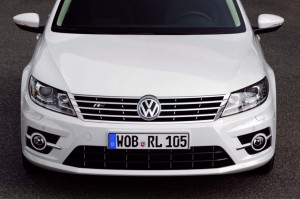At first glance, it might have seemed a tough quarter for Volkswagen AG. After all, the maker’s net profit tumbled by half compared to year-ago levels. But the 2% jump in operating earnings is what analysts and investors are focusing on.
VW’s net was hammered largely by the anticipated, one-time costs associated with its takeover of German sports car manufacturer Porsche. The operating income, up 1.8% year-over-year, tells how the maker was able to hold its own in what it called a “difficult market environment.”
In fact, an even clearer picture of that environment emerged from the earnings report posted by VW’s French rival PSA Peugeot Citroen which saw its losses climb to 426 million euros for the first half of the year due to declining European car sales and a strike by workers protesting its plans to close factories, reduce capacity and eliminate 8,000 jobs.
Like its rivals, VWAG also had to deal with a tough European market – as well as a slowdown in China where it has been the number one maker for the last decade. Nonetheless, VW worldwide sales increased 5.4% to 4.8 million units during the first six months of the year leaving it well positioned to challenge both the world’s largest automaker, rival Toyota, and General Motors which itself came within 50,000 units of overtaking Toyota.
(Toyota retains narrow lead in global sales race. Click Here for the full story.)
Overall, VW’s share of the worldwide passenger car market rose year-on-year to 12.7% from 12.4%.
“We made considerable progress following a subdued start to the year, and can report a solid result in what was a difficult market environment”, said Martin Winterkorn, Chairman of the Board of Management of Volkswagen AG from the maker’s headquarters in Wolfsburg, Germany.
Winterkorn also reaffirmed VW’s guidance for the full year.
(Honda earnings slide despite worldwide sales gains. Click Here for more.)
During the second quarter, VW’s revenue increased an impressive 8.4% to 52.4 billion euros, while the company’s operating profit increased by nearly 2% to 3.4 billion euros.
“Diversity and international focus are increasingly bearing fruit,” he said, underscoring VW’s push to reduce its dependence on the traditional home European market.
Winterkorn noted sales revenue in the first six months was up on the prior-year figure, at 98.7 billion euros. Operating profit amounted to 5.8 billion euros. The consolidated operating profit does not include the 2.4 billion euros share of the operating profit of VW’s joint ventures in China. These companies are included using the equity method and reflected in the financial results.
Profit before tax was 6.6 billion euros campared to 10.1 billion euros in the first half of 2012 when profits had been positively influenced by the remeasurement of the Porsche options (€2.6 billion). Profit after tax was 4.8 billion euros.
(Nissan earnings surge, buoyed by weak yen. Click Here for details.)
Chief Financial Officer Hans Dieter Pötsch said he was guardedly confident, despite the fragile economic environment the maker is facing in several key markets.
“The global economic situation means that it is all the more important for us not to ease up on our efforts to make the Volkswagen Group even more robust and flexible,” he said.
The Volkswagen Passenger Cars brand sold around 2.4 million cars in the first six months, 1.7% fewer than in the first half of 2012 (2.4 million). The brand’s operating profit was €1.5 billion (€2.3 billion), and was weighed down by a deterioration in volumes and mix, as well as upfront expenditures for new technologies.
Unit sales by the Audi brand rose by 2.1% year-on-year to 692,000 vehicles and the FAW-Volkswagen Chinese joint venture sold a further 197,000 Audi vehicles. Audi reported an operating profit of 2.6 billion euros despite higher upfront expenditures for new products, technologies and the expansion of global production structures.
Bentley dropped to 4,200 vehicles from 4,800 the year before but Its operating profit was on a level with the previous year at 58 million euros. Sports car manufacturer Porsche sold 78,000 vehicles and generated an operating profit of 1.3 billion euros in the first half of the year.
As for French rival Peugeot, CEO Philippe Varin tried to put a good spin on some bad numbers by noting a reduction in the maker’s operating losses despite a continued decline in sales. Varin said he “sees the first signs of the group’s recovery.”
Investors appeared to agree, shares immediately rising during morning trading. But they also were buoyed by the news on Tuesday that EU officials approved the French government’s plan for a 572 million rescue package for Peugeot. Regulators said it should return the maker to profitability while having minimal impact on Peugeot’s competitors.
The loan program will go ahead despite opposition by the French socialist government and its union allies to plans by Peugeot to close its Aulnay-sous-Bois plant and eliminate 8,000 jobs.
Paul A. Eisenstein contributed to this report.



VW has gained some ground in the U.S. by lowering it’s sticker price. This results in increased revenue but lower margins. Sales in China have largely plateaued for Euro brands which have helped them look good in spite of the Euro/U.S./Asian economic melt down for the past five years. Porsche sales add significantly to VW’s numbers and the affluent rarely are ever seriously impacted by economic down turns.
VW has very ambitious and questionable plans to be #1 in sales. There are indications this will come back to bite them but that won’t deter those looking to satiate their ego. When it all goes wrong down the road, those responsible will have taken their platinum parachute and set sail.